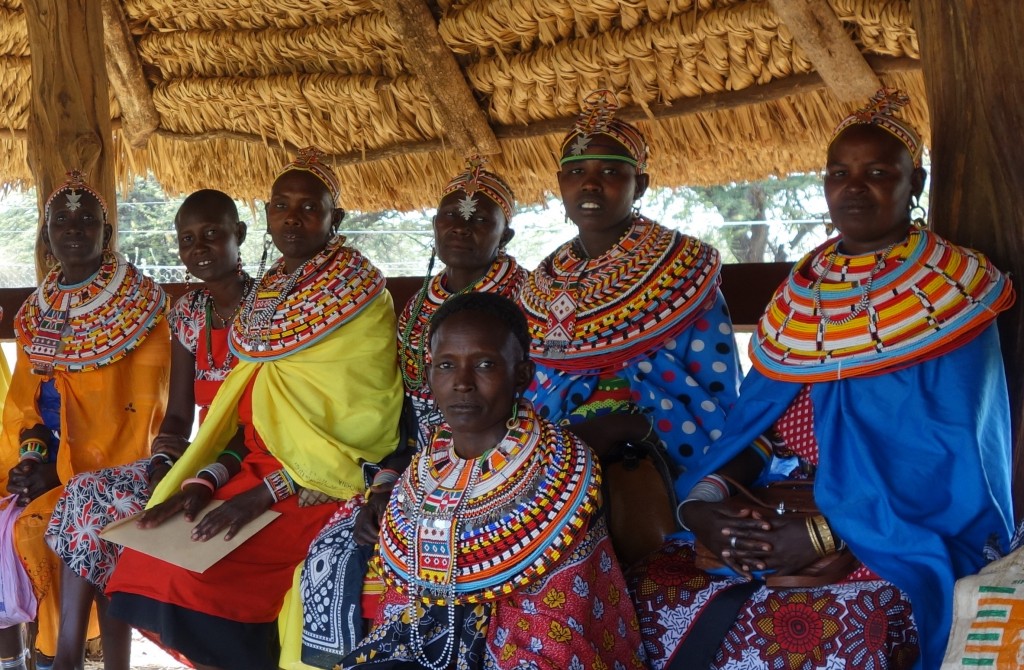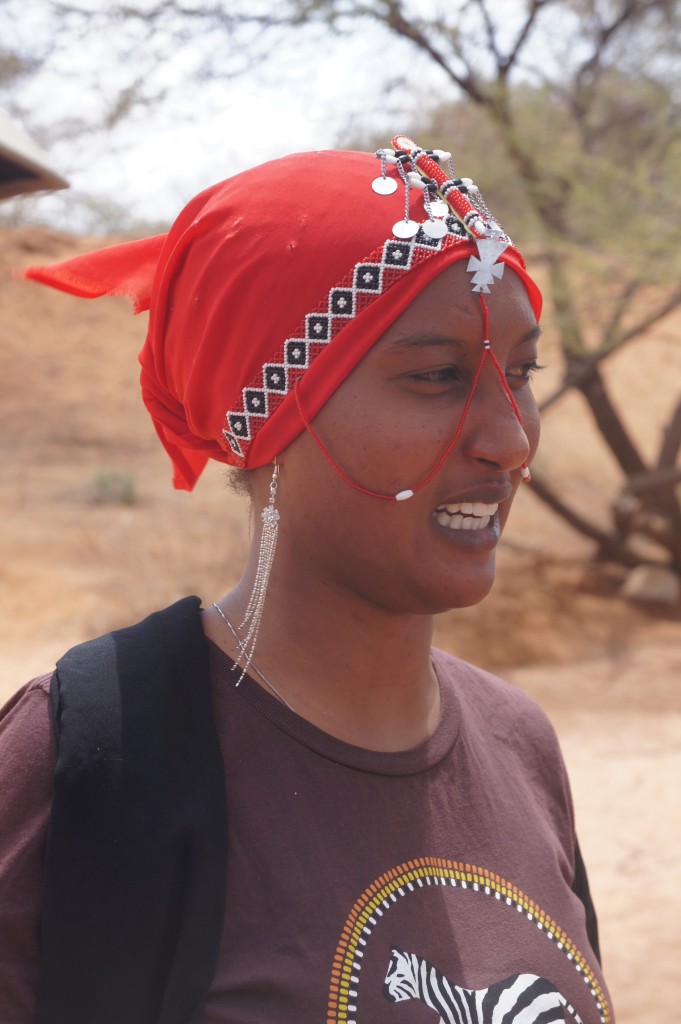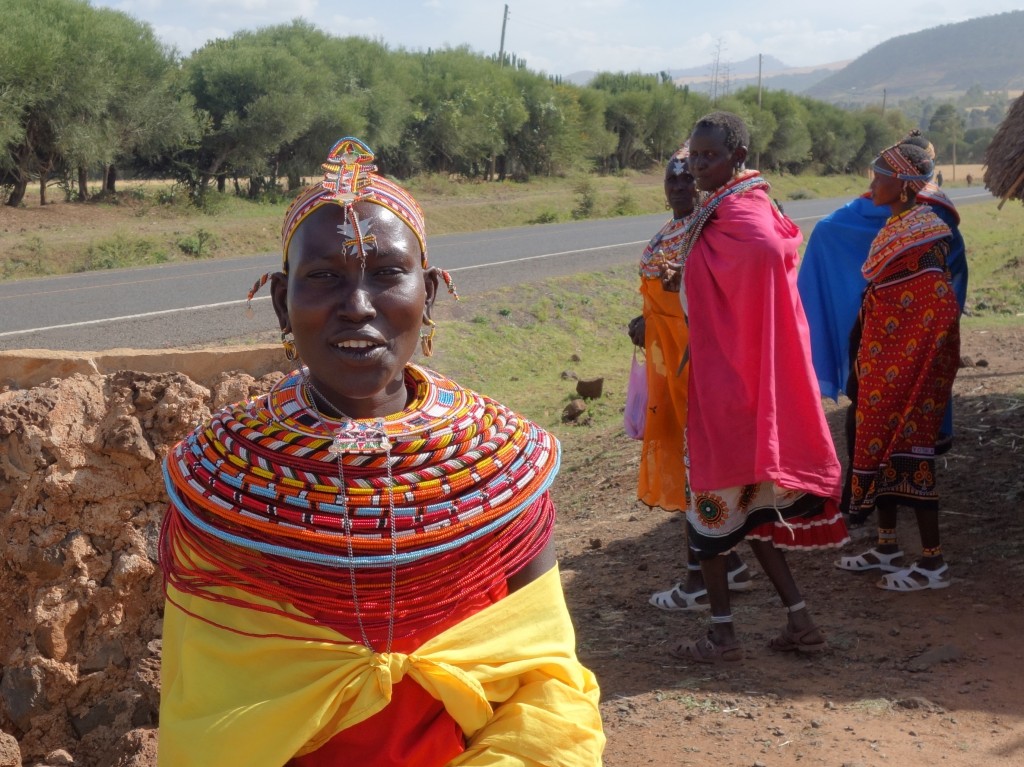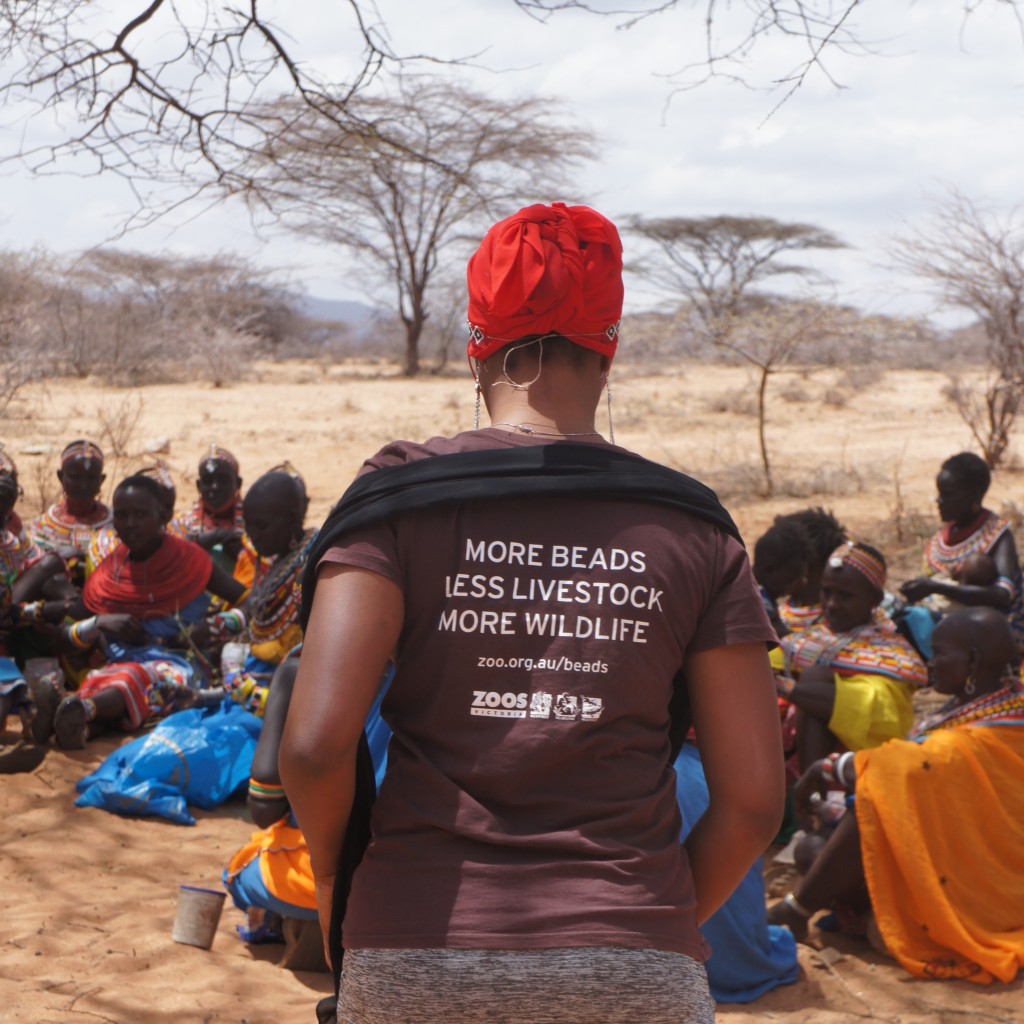I could tell Sori was getting restless. Sori is the field manager for NRT Trading’s BeadWORKS business. She’d been sitting on an unyielding wooden bench for nearly three hours surrounded by 21 somber Samburu women dressed in their best go-to-meeting finery; layers of colorful, flowing kanga and head-to-toe beads. Sori, in her modest, black, floor-length Muslim dress and bright orange head scarf, was a gold crested raven among butterflies.
The 21 women were an unofficial delegation from the Kalama Conservancy. They’d arrived unannounced slightly after 11 am and asked to talk to the NRT leaders. For some of them, Lewa was the farthest they had ever been from home. The women were nervous. They wanted to discuss Kalama’s recent suspension from NRT and its impact on their ability to earn a living. Kalama’s problems were not their fault, they insisted. They were just women who wanted to use their hands to make beautiful things to earn money to send their children to school and to pay for food. They should not be punished for the wrong doings and corruption of 5 male members of the Kalama Board.
Sori and the women listened to me describe why NRT Trading would comply with the NRT Council of Elders’ decision to suspend Kalama. “NRT Trading is a child of NRT,” I explained. “We must obey our parent. Until Kalama addresses its financial irregularities and holds its Board members accountable for their conduct, NRT Trading cannot buy cattle from the herders or beaded products from the women. I am very saddened by this,” I said, placing my hand over my heart. “The Kalama women were our first beading group. You are the Mama’s for the entire program. You are very close to our hearts and we want to resume doing business with you.”
The delegation was not happy with my message. What could they do, they asked? They were just powerless women with no authority. They were suffering. The NRT Trading bead program had brought light and hope into their lives, now darkness was descending upon them once again. I could feel my resolve wavering but I knew I would not change the decision.
Then Sori leaned forward, her slim, graceful hands extended toward the women, her palms facing upwards. She started to talk in a soft, clear, feminine voice. The women became still. “In my village,” Sori said, “we have a story. There was once a very old, very wise and very humble man. He lived in a small hut at the edge of the village. All the people came to him with their problems and their questions. The old man would listen to the people, resting his arms on his walking stick and then think and think on their questions. Finally he would give them the answers, and he was always right.”
“One day,” Sori continued, shifting in her seat so that she faced the center of the group, “a young warrior decided to challenge the old man. “You do not know everything,” the warrior said, “and I will prove it to everyone.” Just then a beautiful butterfly settled on the branch of a nearby acacia tree. The warrior scooped it up and enclosed it in the palm of his hand.
“Is this butterfly alive or dead?” the young man challenged, looking very pleased with himself.
The old man stood quietly and considered. He pondered the warrior’s hands and then raised his gaze to look into warrior the eyes. “If I say it is alive,” the wise man answered, “you may crush your palm flat and the butterfly will be dead. If I say it is dead, you may open your palm and the butterfly will be alive and fly away. You hold the butterfly’s future in the palm of your hand. You will decide if it is alive or dead.”
Sori opened her fingers and moved her hands skyward. “Like the warrior with the butterfly,” she told the women, “you hold Kalama’s future in the palms of your hands. Your actions will determine if it lives or dies. It is up to you to decide.”
The women considered Sori’s story for a moment and then started chattering. They would not let a few bad men take away their livelihoods. The upcoming Sunday was International Women’s Day. Many important people were coming to Archers Post and there would be rallies and speeches. The Kalama delegation would go and talk to as many people as they could and tell them about what was going on in their Conservancy. The women asked for copies of the suspension letter. They could not read, but many of their children could. The people in the town needed to know the truth. At 3 pm, after being served sodas and digestive biscuits, 21 determined women walked to the Lewa gate, boarded matatus and headed home to keep their butterfly alive.
I know those reading this post will want to know what happened. Did the women take action? Has Kalama been readmitted to NRT? Yes the women went to Archers Post on International Women’s Day and met with other people in the community. They have also made their feelings known to their husbands and their sons. The entrenched members of the old Board are still fighting, but they are losing. Kalama will soon hold a General Meeting to certify a new Board under the watchful eyes of officials from Samburu County and from NRT. We are confident the butterfly is alive and will be back in the fold in April.





Wow! Such wisdom and power in stories! I see this again and again in various cultures, but not in the United States. They have stories that have depth to teach, to pass along values, to inspire action . . . and that is exactly what this story did. The women were able to interpret it, find meaning in it, and empower themselves to go forward with hope. Powerful! Thank you Anne, for an amazing lesson.
Joann
The right story at the right time can make a big difference.
Thanks for sharing.
Our elders in all cultures offer wisdom, too bad we don’t listen as we should. Thank you for sharing Anne. How hard it must have been to not get in the middle of this. The change must come from within themselves.